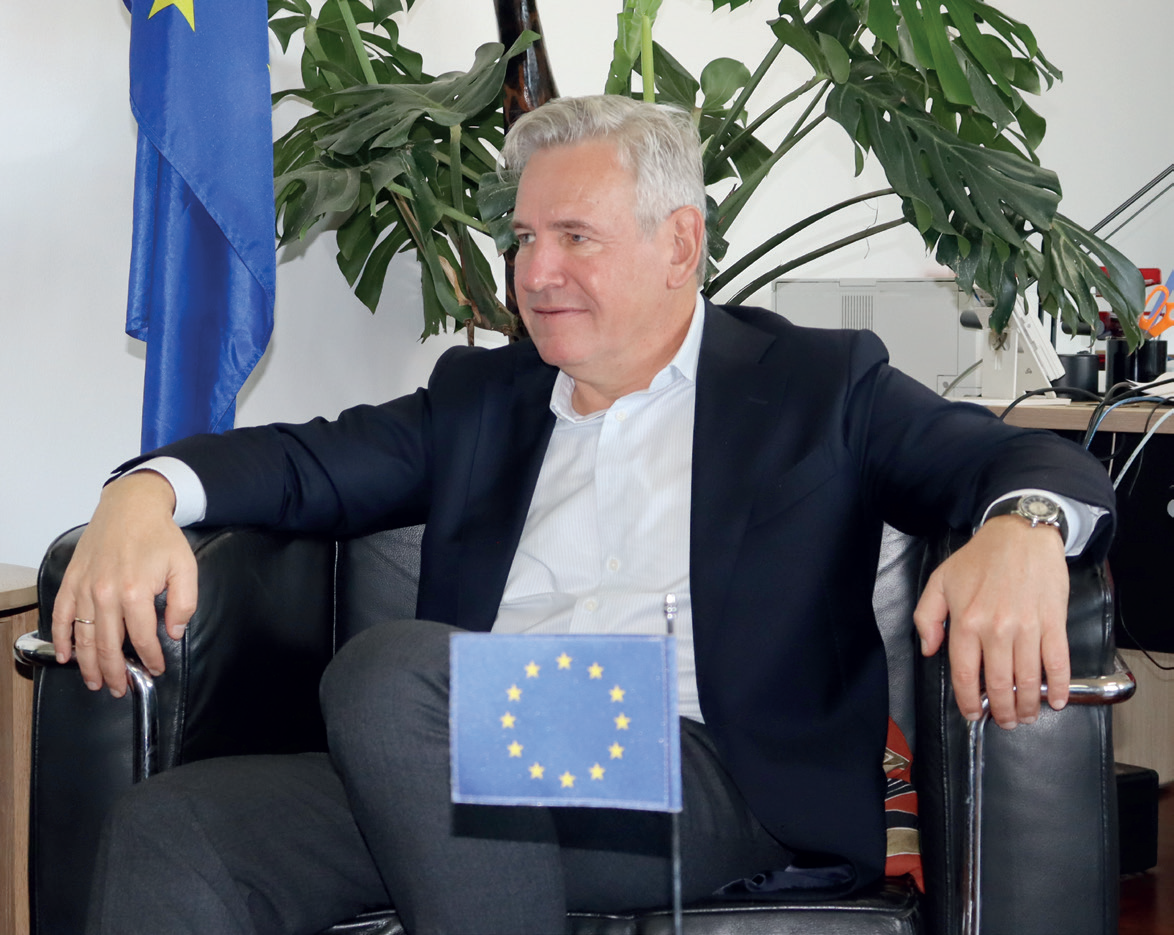By Eric Mtemang’ombe
Outgoing European Union (EU) Ambassador Rune Skinnebach has said that Malawi’s economic recovery hinges on restoring macroeconomic stability and undertaking deep structural reforms.
In an exclusive interview on Friday, the envoy urged fiscal and monetary authorities to prioritise restructuring of the public debt, currently at about K17 trillion, stimulate domestic production and maintain policy credibility to attract foreign direct investment.
Skinnebach described macroeconomic stability as the “gateway” to investor confidence and effective utilisation of the EU’s Everything But Arms trade preferences.
“We need private-sector-led growth, but that cannot happen without a stable macro environment,” he said.
The EU envoy expressed concern about Malawi’s recent collapse of a four-year $175 million (about K306 billion) International Monetary Fund Extended Credit Facility, cautioning that the move could erode investor trust.
“It’s really bad news and it will signal that the macro framework is not there,” he warned.
Recent data appears to support his concerns. Malawi closed the year 2024 with a trade deficit of $2.62 billion (about K4.5 trillion) after imports at $3.21 billion (about K5.6 trillion) far outpacing national exports at $950 million (about K1.6 trillion).
Meanwhile, foreign exchange reserves remained critically low, averaging 2.1 months of import cover in early 2025, well below the 3.6 month minimum threshold typically recommended for credit-constrained economies.
Besides, government finances are also under significant pressure. Between April 2024 and March 2025, Malawi collected K4.9 trillion in revenue, but spent K6.76 trillion, resulting in a K1.86 trillion fiscal deficit.
Interest payments on the public debt absorbed K1.64 trillion, which is more than the K1.56 trillion allocated for development spending.
In the 2025/26 financial year, interest payments are expected to consume nearly 49 percent of domestic revenue pegged at about K4 trillion.
“There is a vicious circle here. The capacity of the government to issue bonds is unlimited and the benefits for local banks are that they make good profits on it as long as the government does not default,” said Skinnebach.
The EU diplomat sees opportunities for reform, citing the Mpatamanga Hydropower Project, co-financed by the EU and the World Bank, as a transformative investment that can double Malawi’s energy generation capacity by 2031 and catalyse industrial growth.
Minister of Energy Ibrahim Matola described the power project as the most cost-effective solution to meeting rising power demand.
He said: “Once operational, this project will help drive long-term energy security and support lasting, inclusive economic growth.
“Energy access is fundamental to reducing poverty, fostering growth, and attracting private investment.”
Matola linked power production growth to investment in human capital.
Human development was also at the centre of remarks by United Nations Development Programme resident representative Fenella Frost, who spoke at the launch of the 2025 Human Development Report.
She stressed that in the face of overlapping challenges, climate change, poverty and economic pressures, investing in digital capabilities and inclusive education systems is both a moral and strategic imperative.
But while Malawi’s macroeconomic outlook remains fragile, Skinnebach believes the building blocks for recovery exist.
The challenge, he stressed, is to restore stability, regain investor trust, and invest in sectors that offer long-term growth.
Malawi’s economy is going through various challenges with inflation rate at 27.7 percent.
